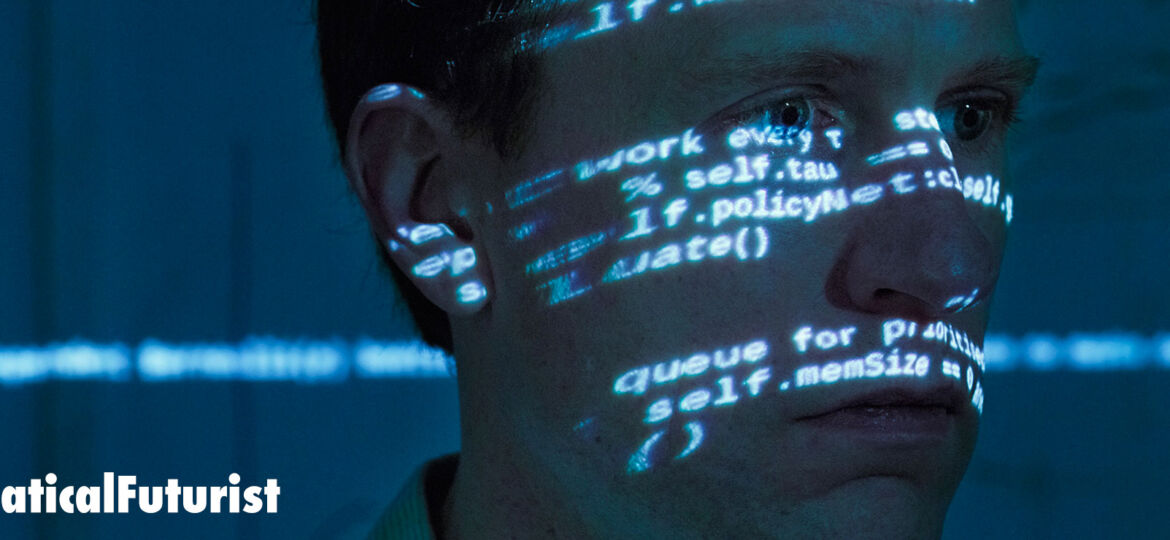
WHY THIS MATTERS IN BRIEF
The debates about the impact of AI on humanity and civilisation will rage on for decades to come, if not centuries, but there is a broad consensus that our world will change significantly as a result of it in the next fifty years.
Enjoy beating the robots and kicking your Roomba around the room while you still can because according to a study by the University of Oxford, who produced the now famous future of jobs report, and Yale University of more than 350 Artificial Intelligence (AI) experts, there is a 50 per cent chance that machines will outperform humans in every task within 45 years.
Yes, puny human, they’ll be better at moving your mouse aimlessly around the desk, better at doing the washing up and mowing the garden, and better than you at designing new forms of energy systems and interstellar spacecraft.
Feel ashamed. Now twiddle your opposable thumbs and dream about the day you can plug yourself into AI and the Hive Mind.
According to the panel AI will master many activities a lot sooner though. The Machines are predicted to be better than us at translating languages by 2024, writing high school essays by 2026, well, in my case they probably beat me at that activity in the 80’s, driving a truck by 2027, working in retail by 2031, writing a bestselling book by 2049 and surgery by 2053.
In fact, the experts say that all human jobs will be automated within the next 120 years, and if you don’t think you’ll be around in 120 years time then think again…
The survey polled AI researchers who attended the 2015 Conference on Neural Information Processing Systems and the International Conference on Machine Learning, and the results have “far-reaching social consequences,” says Katja Grace at the Machine Intelligence Research Institute in Berkeley, California.
How will teachers deal with computer-generated essays that are indistinguishable from the real thing, for example?
Probably by the quality is my guess… let’s face it most of us suck at essay writing anyway. But at least we will still be around to deal with these issues, which is a nice thought, because despite media hype about the dangers of AI, the researchers put only a 5 per cent chance on AI bringing about the extinction of humans.
I believe that it has something to do with the fact they’ll find it difficult to move the mouse pointer over the “Kill all humans” button on the nuclear launch screen at NORAD. But don’t take my word for it.
It has to be said though that AI’s can already beat us in a variety of tasks already, whether it’s beating Go, PacMan and Poker players, lip reading and translating languages, beating Wall Street traders and outperforming doctors and warehouse packers, or designing new AI’s and protecting the planet, but each of the AI’s involved in these tasks is only good at one task, and unless they’re retrained then that’s the way they’ll stay – until, that it, the advent of Artificial General Intelligence (AGI) which might appear as soon as 2035.
“There is accumulating evidence that machines can overpower human intelligence in complex, though specific tasks,” says Eleni Vasilaki at the University of Sheffield in the UK, but there is little evidence that AI with human like versatility will appear any time soon, she says.
The survey results also showed no link between the seniority of a researcher and the predictions they made, but where people were from had an impact.
Those in Asia typically gave shorter time frames than those in the USA – predicting, for example, that AI would outperform humans on all tasks within 30 years, compared with 74 years.
“This may well be an interesting demonstration of culture at work when forming opinions about technology,” says Leslie Willcocks at the London School of Economics and Political Science.
The responses however, as you might expect, were not always consistent, such as those concerning which game AI will master next.
“They predict that AI will surpass humans at the video game StarCraft in six years, compared to all Atari games in nine years,” says Georgios Yannakakis at the University of Malta in Msida, adding “some Atari games are hard, but nothing like StarCraft.”
Additionally, most of the survey focuses on the cognitive aspects of intelligence that fit well defined tasks.
“… but parts of intelligence, such as emotional intelligence, go beyond cognition,” says Yannakakis, “it would be interesting to ask when AI will surpass humans at being art or movie critics.”
Well, I have news for you Yannakakis, my friend, they’ve already become critics, and apparently they’re quite good at picking winners. As for myself I’m now off to retrain myself as an AI – does that work? And yes, all of the grammatical errors are mine, that’s how you know I’m a human. Or am I? Mmmm… haha puny human.
//EndProgram

















I wonder how many will be Priests and Pastors?
With one huge difference. The AI running the lab, won’t be wasting time on doing science for science’s sake.
Once we get to the singularity we are going to need some enhancements to keep up. Synthetic biology needs to be producing extra RAM and faster processors for the human brain before 2050!